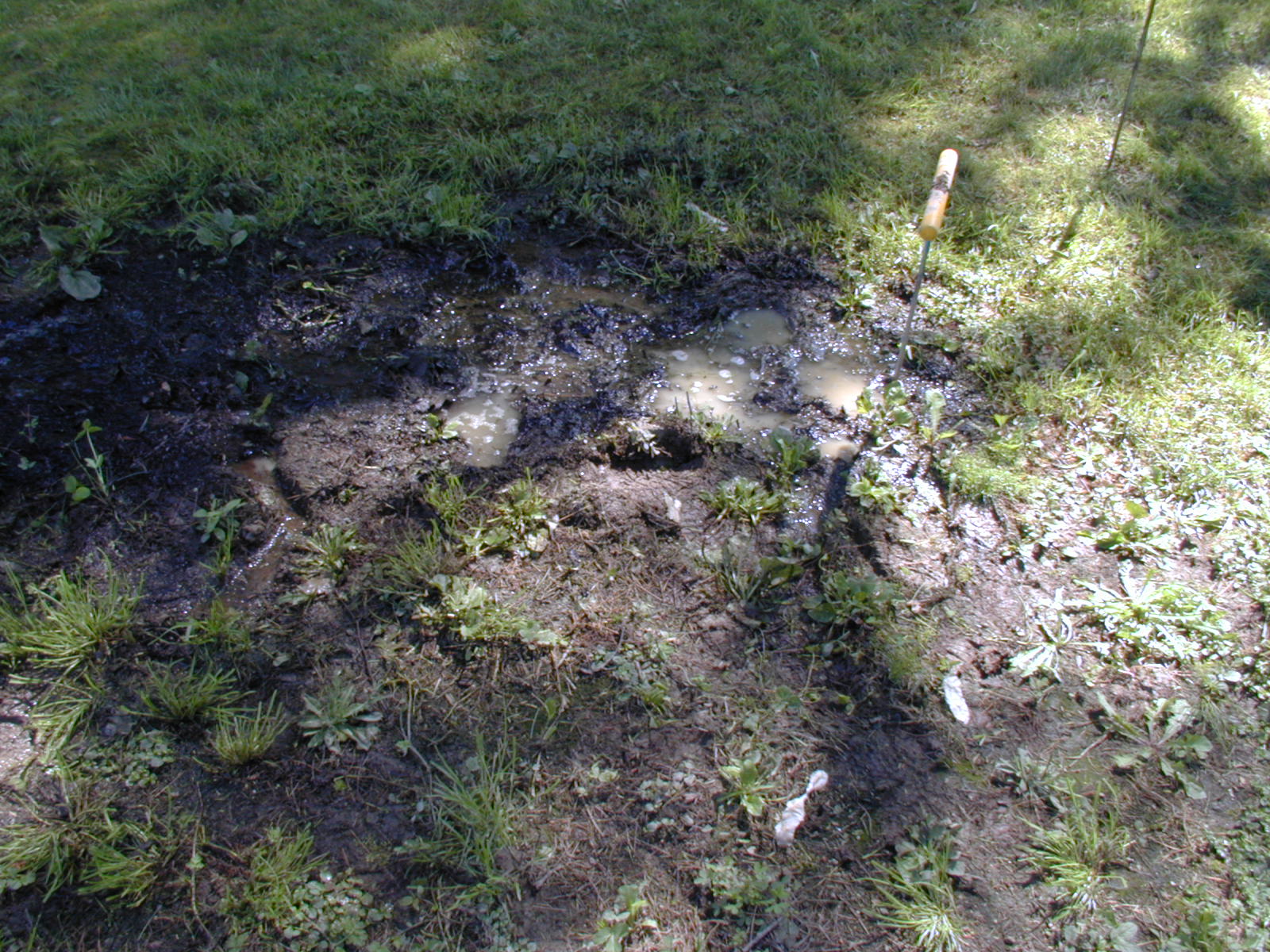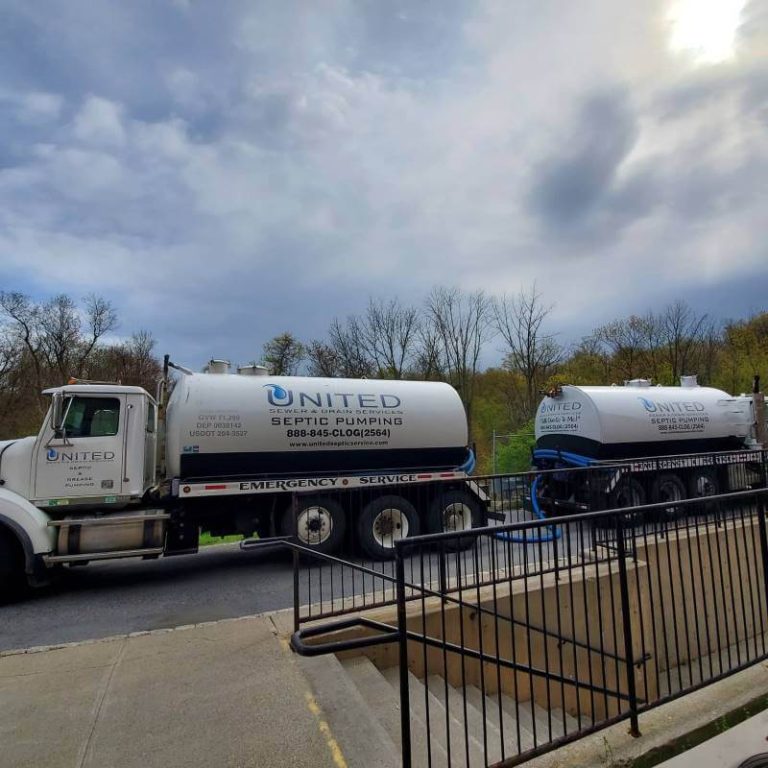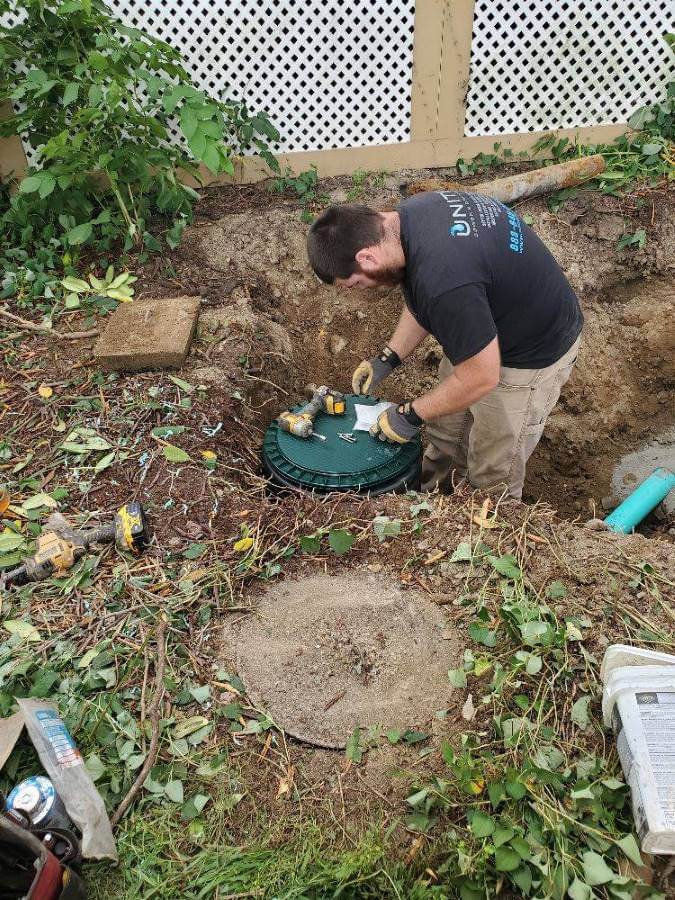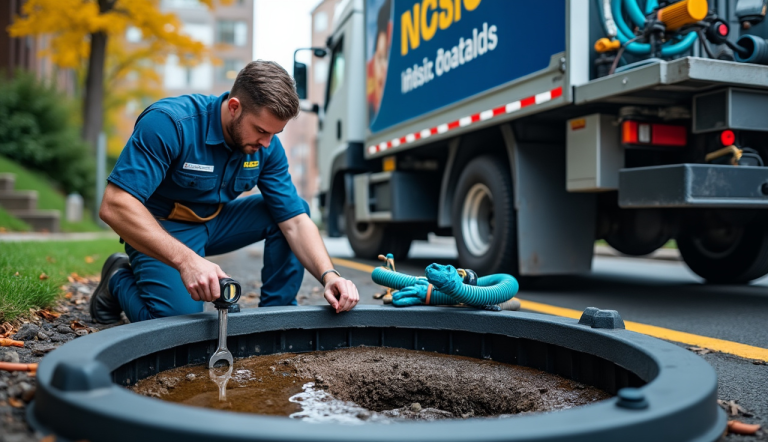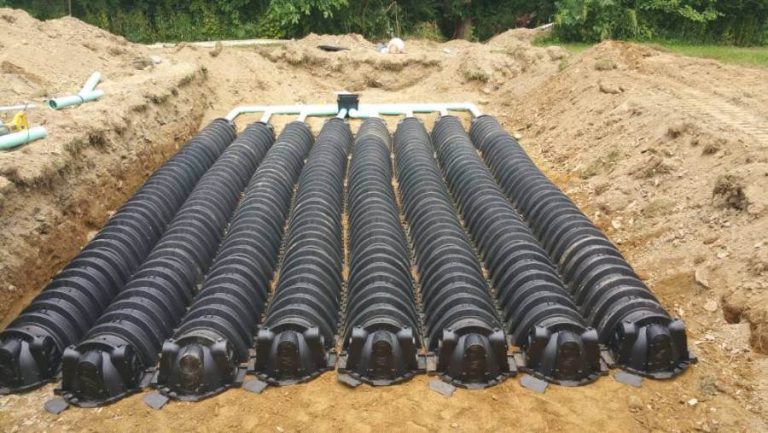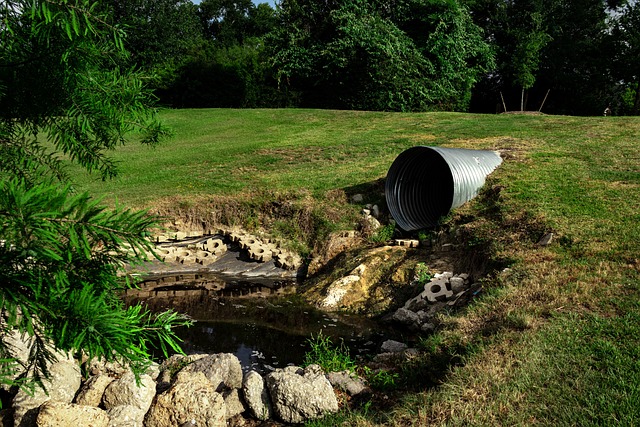Prevent Drain Field Failure and Saturation in Septic Systems
How to prevent and address drain field failure and saturation in septic systems. Protect your home from backups and costly repairs with expert tips.
Drain field failure and saturation in septic systems can cause major headaches for homeowners in Middletown, New York. These issues often lead to sewage backups, foul odors, and potential health hazards. Understanding the causes, signs, and solutions to these problems is crucial for maintaining a healthy septic system and protecting your property.
Table of Contents
Key takeaways
- Drain field failure occurs when the soil can no longer absorb wastewater effectively.
- Saturation happens when the drain field becomes overwhelmed with excess water.
- Common causes include heavy rainfall, overuse of water, and poor maintenance.
- Signs of problems include wet spots in the yard, slow-draining fixtures, and sewage odors.
- Regular pumping and inspections are essential for preventing drain field issues.
- Water conservation and proper waste disposal habits can extend the life of your septic system.
- Professional help is often necessary to diagnose and repair drain field problems.
Understanding Drain Failure and Saturation in Septic Systems
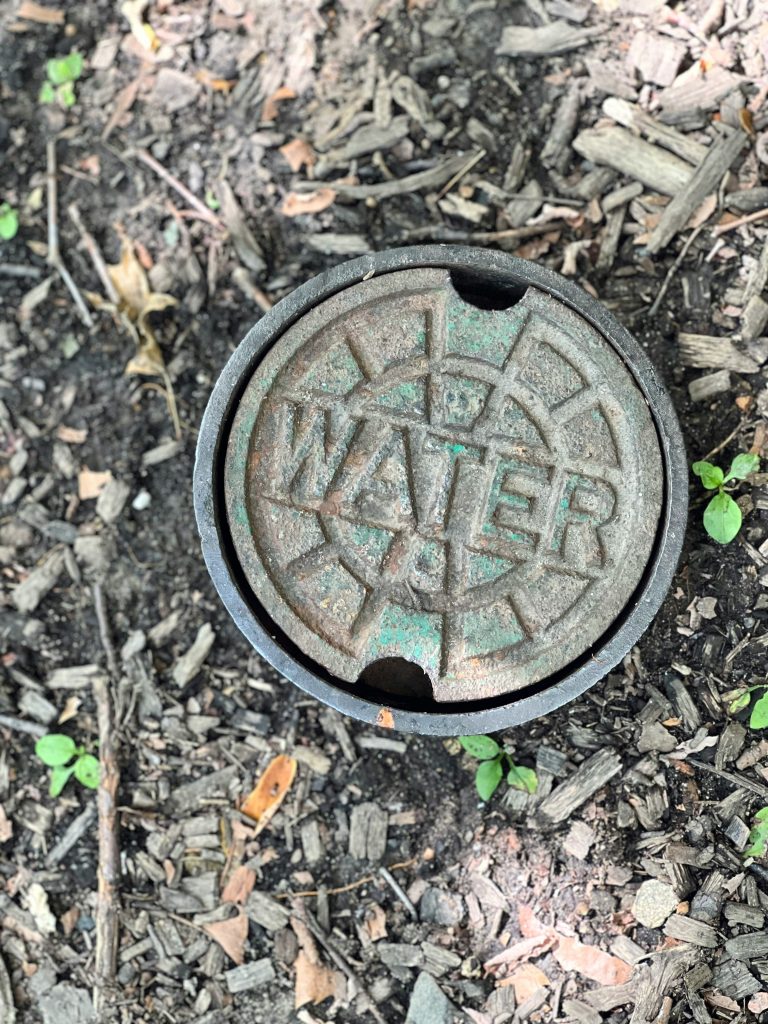
The drain field failure and saturation in septic systems, also known as the leach field, is a crucial component of your septic system. It’s responsible for filtering and dispersing treated wastewater from the septic tank into the surrounding soil. In Middletown, where many homes rely on septic systems, a properly functioning drain field is essential for maintaining a healthy and efficient waste management system.
When wastewater enters the drain field, it percolates through the soil, which acts as a natural filter. Beneficial bacteria in the soil break down remaining organic matter and remove harmful pathogens. This process is vital for protecting groundwater and the environment.
Common Causes of Drain Field Failure and Saturation
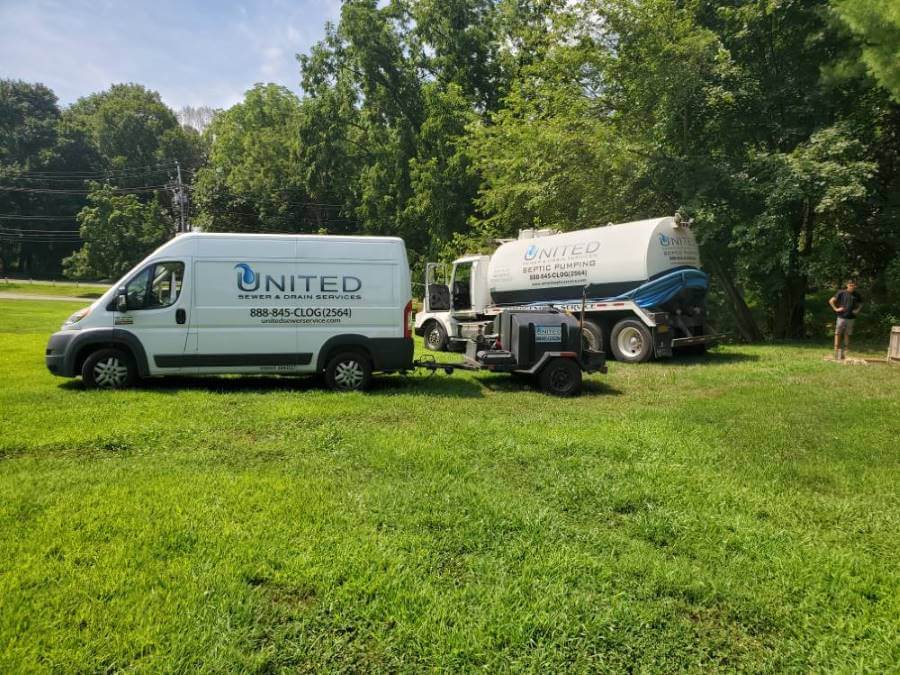
Several factors can contribute to drain field failure and saturation in Middletown septic systems. Understanding these causes can help homeowners take preventive measures and address issues before they become severe.
Heavy rainfall and flooding
Middletown experiences its fair share of rain, especially during the spring and fall. Excessive rainfall can saturate the soil around your drain field, making it difficult for wastewater to percolate properly. This can lead to backups and system failure.
Overuse of water
Using too much water in your home can overwhelm your septic system and drain field. This is particularly common in households with high water usage habits or during times when you have guests staying over.
Poor maintenance practices
Neglecting regular septic tank pumping and inspections can lead to solids building up and flowing into the drain field. This can clog the soil pores and reduce the field’s ability to absorb wastewater.
Landscaping and construction errors
Planting trees too close to the drain field failure and saturation in septic systems or driving heavy vehicles over it can damage the system and lead to failure. Additionally, improper grading or drainage around the drain field can cause water to pool and saturate the area.
Signs of Drain Field Problems
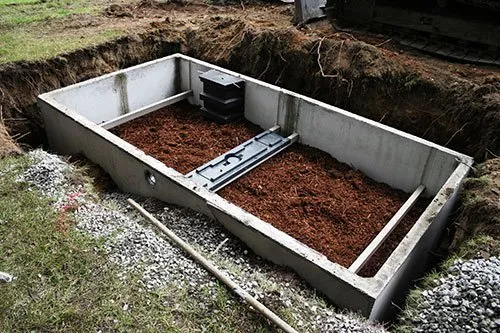
Recognizing the early signs of drain field issues can help you address problems before they escalate. Here are some common indicators to watch for:
Wet spots in the yard
If you notice unusually soggy areas or standing water in your yard, especially near the drain field failure and saturation in septic systems, it could be a sign of saturation or failure.
Slow draining fixtures
When sinks, showers, or toilets start draining slowly, it may indicate that your septic system is backing up due to drain field problems.
Sewage odors
Foul smells around your property, particularly near the drain field failure and saturation in septic systems area, can signify that wastewater isn’t being properly treated and absorbed.
Lush vegetation over the drain field
While it might seem like a good thing, unusually green or fast-growing grass over your drain field can indicate that excess nutrients are reaching the surface due to saturation.
The impact of Middletown’s climate on septic systems
Middletown’s climate plays a significant role in the health of septic systems. The area experiences cold winters and moderate summers, which can affect drain field performance in different ways.
Winter challenges
During cold winters, frozen ground can prevent proper wastewater absorption. This can lead to temporary saturation issues that may be resolved as the ground thaws.
Spring thaw effects
As snow melts in the spring, the excess water can saturate the drain field, potentially causing temporary issues until the soil dries out.
Summer considerations
While summers in Middletown are generally moderate, occasional heavy rainstorms can still lead to drain field saturation. Additionally, increased water usage during summer activities can put extra strain on your septic system.
Preventing drain field failure and saturation
Taking proactive steps to maintain your septic system can help prevent drain field issues and extend the life of your system.
Regular septic tank pumping
Having your septic tank pumped every 3-5 years (or as recommended by a professional) can prevent solids from overflowing into the drain field.
Water conservation practices
Implementing water-saving habits and fixtures can reduce the load on your septic system and drain field. This includes fixing leaks promptly and spreading out water-intensive activities throughout the week.
Proper waste disposal
Avoid flushing non-biodegradable items or pouring harsh chemicals down the drain. These can disrupt the bacterial balance in your septic system and clog the drain field.
Landscaping considerations
Be mindful of your drain field when planning landscaping projects. Avoid planting trees or shrubs with invasive root systems near the area, and redirect downspouts away from the drain field to prevent excess water accumulation.
Professional solutions for drain field issues
When faced with severe drain field problems, it’s crucial to seek professional help. Experienced septic service providers in Middletown can offer various solutions to address failure and saturation issues.
Drain field rejuvenation
This process involves using specialized equipment to break up and remove the biomass layer that can form in the drain field, improving soil absorption.
Drain field expansion
In some cases, adding more drain field areas can help distribute wastewater more effectively and reduce the load on the existing field.
Advanced treatment systems
Installing additional treatment components before the drain field can improve wastewater quality and extend the life of your drain field.
Drain field replacement
In severe cases of failure, a complete drain field replacement may be necessary. This involves excavating the old field and installing a new one, often in a different location on the property.
The role of soil type in drain field performance
The type of soil in your Middletown property plays a crucial role in how well your drain field functions. Different soil types have varying abilities to absorb and treat wastewater.
Sandy soils
Sandy soils typically drain well but may not provide adequate filtration. This can lead to faster wastewater movement and potential groundwater contamination.
Clay soils
Clay soils have poor drainage capabilities and can easily become saturated. This can lead to frequent drain field issues in areas with high clay content.
Loamy soils
A mix of sand, silt, and clay, loamy soils often provide the best balance for drain field function. They offer good drainage while still providing adequate filtration.
The importance of regular inspections
Regular inspections by qualified professionals can catch potential drain field failure and saturation in septic systems issues before they become major problems. These inspections typically include:
Visual assessment
A thorough examination of the drain field failure and saturation in septic systems for signs of saturation, odors, or unusual plant growth.
System performance evaluation
Checking the overall function of the septic system, including tank levels and effluent quality.
Soil analysis
Testing the soil around the drain field failure and saturation in septic systems to assess its absorption capabilities and identify any potential issues.
Water conservation strategies for Middletown homeowners
Implementing water-saving practices can significantly reduce the strain on your septic system and drain field. Here are some effective strategies:
Low-flow fixtures
Installing low-flow toilets, showerheads, and faucet aerators can dramatically reduce water usage without sacrificing comfort.
Efficient appliances
Choosing water-efficient washing machines and dishwashers can help conserve water and protect your septic system.
Mindful water use habits
Simple changes like taking shorter showers, turning off the tap while brushing teeth, and only running full loads of laundry can make a big difference.
The impact of household products on septic systems
The products you use in your home can have a significant effect on your septic system and drain field health.
Cleaning products
Harsh chemicals and antibacterial cleaners can disrupt the bacterial balance in your septic tank, leading to poor treatment and potential drain field issues.
Medications
Unused medications should never be flushed down the toilet, as they can harm the beneficial bacteria in your septic system and potentially contaminate groundwater.
Garbage disposal use
While convenient, excessive use of garbage disposals can increase the solid waste in your septic tank, leading to more frequent pumping needs and potential drain field problems.
Seasonal maintenance tips for Middletown septic systems
Adapting your septic system care to Middletown’s changing seasons can help prevent drain field issues throughout the year.
Fall Preparation
Before winter sets in, have your septic system inspected and pumped if necessary. This can help prevent issues during the colder months when the ground may freeze.
Winter care
Avoid compacting snow over your drain field, as this can insulate the ground and prevent proper heat distribution, potentially leading to freezing issues.
Spring check-up
After the spring thaw, have your system inspected for any damage that may have occurred during the winter months.
Summer maintenance
Be mindful of increased water usage during summer activities and spread out water-intensive tasks to avoid overwhelming your system.
Community resources for septic system education
Middletown and the surrounding Orange County area offer various resources to help homeowners understand and maintain their septic systems.
Local health department
The Orange County Health Department provides information and guidelines on septic system maintenance and regulations.
Cooperative extension services
Cornell Cooperative Extension of Orange County offers educational programs and resources on septic system care and environmental protection. The future of septic systems in Middletown
As technology advances and environmental concerns grow, the future of septic systems in Middletown may see some changes.
Advanced treatment technologies
New technologies that provide more efficient wastewater treatment may become more common, reducing the strain on traditional drain fields.
Smart monitoring systems
Remote monitoring systems that can alert homeowners to potential issues before they become serious problems may become more widespread.
Sustainable design practices
Future septic system designs may focus more on sustainability, incorporating features like greywater reuse and alternative drain field materials.
Comparing traditional and alternative drain field systems
While traditional drain field failure and saturation in septic systems are common in Middletown, alternative systems are sometimes necessary due to site constraints or environmental concerns.
| System Type | Advantages | Disadvantages | Best Suited For |
|---|---|---|---|
| Traditional Drain Field | – Simple design- Cost-effective- Low maintenance | – Requires large area- Vulnerable to saturation | Properties with adequate space and suitable soil |
| Mound System | – Works in areas with high water table- Suitable for poor soil conditions | – Higher installation cost- Requires pumping- Visually prominent | Sites with high groundwater or poor soil percolation |
| Sand Filter | – Excellent treatment quality- Works in areas with poor soil | – Higher maintenance needs- More complex design | Areas with very poor soil or tight lot constraints |
| Aerobic Treatment Unit | – High-quality effluent- Smaller drain field required | – Higher energy costs- More frequent maintenance | Environmentally sensitive areas or small lots |
Cost considerations for drain field repair and replacement
When facing drain field failure and saturation in septic systems issues, it’s important to understand the potential costs involved in various repair or replacement options.
| Solution | Estimated Cost Range | Factors Affecting Cost | Lifespan |
|---|---|---|---|
| Drain Field Rejuvenation | $2,000 – $5,000 | – Severity of clogging- Size of drain field- Accessibility | 5-10 years |
| Drain Field Expansion | $5,000 – $10,000 | – Size of expansion- Soil conditions- Permitting requirements | 15-30 years |
| Complete Replacement | $10,000 – $30,000+ | – System size- Site conditions- Type of system installed | 20-30 years |
| Advanced Treatment System | $15,000 – $40,000 | – Type of technology- Size of system- Installation complexity | 20-30 years |
Essential steps for maintaining a healthy drain field
To keep your drain field failure and saturation in septic systems functioning properly and avoid saturation issues, follow these essential maintenance steps:
- Schedule regular septic tank pumping every 3-5 years
- Conserve water and spread out water-intensive activities
- Avoid flushing non-biodegradable items or harsh chemicals
- Keep vehicles and heavy equipment off the drain field area
- Maintain proper landscaping around the drain field
- Fix plumbing leaks promptly to reduce excess water in the system
- Use septic-safe cleaning products and avoid antibacterial soaps
- Have your system professionally inspected annually
- Keep accurate records of all maintenance and repairs
- Educate family members and guests about proper septic system use
By following these steps and staying vigilant, Middletown homeowners can significantly reduce the risk of drain field failure and saturation, ensuring their septic systems remain healthy and functional for years to come. How to prevent and address drain field failure and saturation in septic systems. Protect your home from backups and costly repairs with expert tips. For more information, you can visit our website or contact us.

